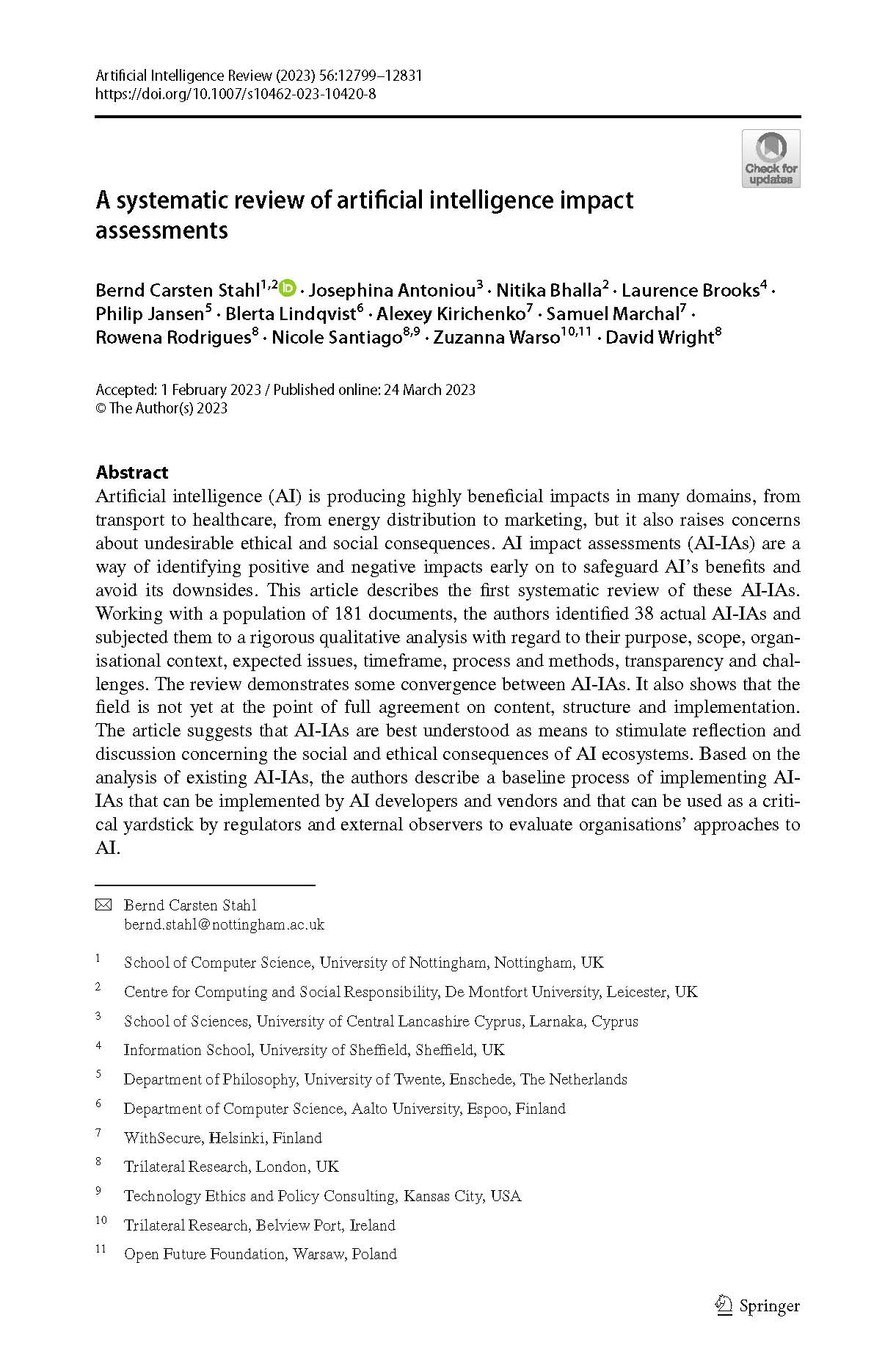A systematic review of artificial intelligence impact assessments
Article Ecrit par: Kirichenko, Alexey ; Lindqvist, Blerta ; Jansen, Philip ; Brooks, Laurence ; Bhalla, Nitika ; Antoniou, Josephina ; Marchal, Samuel ; Rodrigues, Rowena ; Santiago, Nicole ; Warso, Zuzanna ; Wright, David ; Stahl, Bernd Carsten ;
Résumé: Artificial intelligence (AI) is producing highly beneficial impacts in many domains, from transport to healthcare, from energy distribution to marketing, but it also raises concerns about undesirable ethical and social consequences. AI impact assessments (AI-IAs) are a way of identifying positive and negative impacts early on to safeguard AI's benefits and avoid its downsides. This article describes the first systematic review of these AI-IAs. Working with a population of 181 documents, the authors identified 38 actual AI-IAs and subjected them to a rigorous qualitative analysis with regard to their purpose, scope, organisational context, expected issues, timeframe, process and methods, transparency and challenges. The review demonstrates some convergence between AI-IAs. It also shows that the field is not yet at the point of full agreement on content, structure and implementation. The article suggests that AI-IAs are best understood as means to stimulate reflection and discussion concerning the social and ethical consequences of AI ecosystems. Based on the analysis of existing AI-IAs, the authors describe a baseline process of implementing AI-IAs that can be implemented by AI developers and vendors and that can be used as a critical yardstick by regulators and external observers to evaluate organisations' approaches to AI.
Langue:
Anglais
Index décimal
006.3 .Intelligence artificielle (ouvrages généraux sur l'intelligence artificielle et la science cognitive, reconnaissance de formes comme outil de l'intelligence artificielle, systèmes de questions et réponses)
Thème
Informatique
Mots clés:
Systematic review
Impact assessment
AI governance

